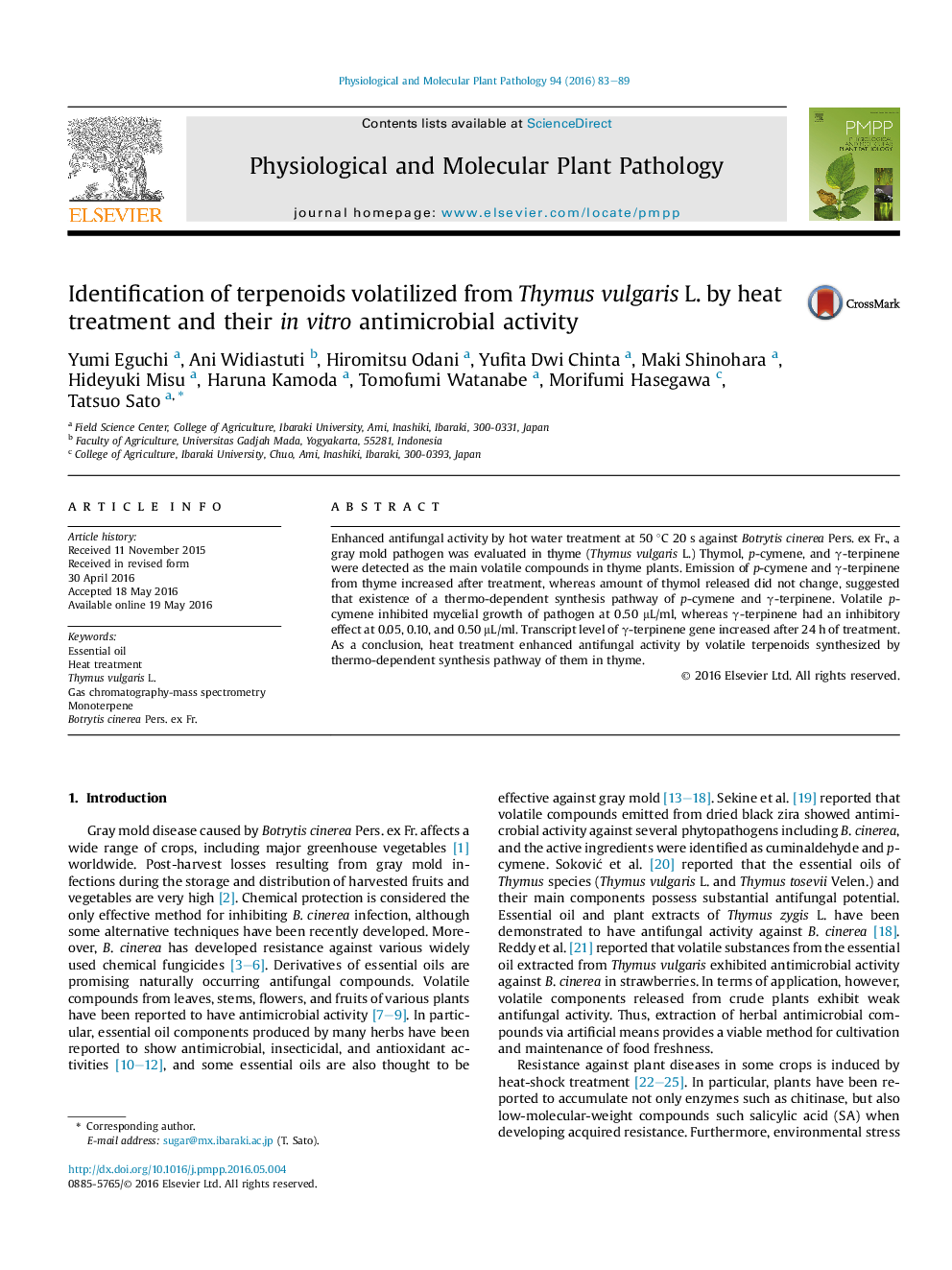| Article ID | Journal | Published Year | Pages | File Type |
|---|---|---|---|---|
| 2836200 | Physiological and Molecular Plant Pathology | 2016 | 7 Pages |
•Volatile organic components of Thymus vulgaris have antimicrobial activity.•Thyme volatile components inhibited Botrytis cinerea mycelial growth after heat treatment.•Thymol, p-cymene, and γ-terpinene were the main volatile compounds.•The biosynthetic gene expression of γ-terpinene tended to increase after heat treatment.•Heat treatment of Thymus vulgaris may be useful for plant disease control.
Enhanced antifungal activity by hot water treatment at 50 °C 20 s against Botrytis cinerea Pers. ex Fr., a gray mold pathogen was evaluated in thyme (Thymus vulgaris L.) Thymol, p-cymene, and γ-terpinene were detected as the main volatile compounds in thyme plants. Emission of p-cymene and γ-terpinene from thyme increased after treatment, whereas amount of thymol released did not change, suggested that existence of a thermo-dependent synthesis pathway of p-cymene and γ-terpinene. Volatile p-cymene inhibited mycelial growth of pathogen at 0.50 μL/ml, whereas γ-terpinene had an inhibitory effect at 0.05, 0.10, and 0.50 μL/ml. Transcript level of γ-terpinene gene increased after 24 h of treatment. As a conclusion, heat treatment enhanced antifungal activity by volatile terpenoids synthesized by thermo-dependent synthesis pathway of them in thyme.
